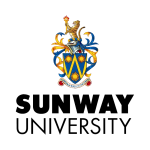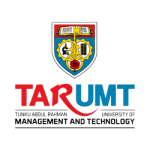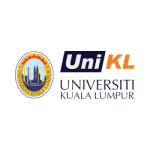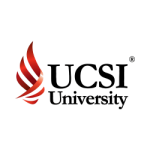In This Article

Businesses can’t sustain healthily without a healthy planet.
Many businesses globally are prioritising sustainability which involves reducing negative environmental and social effects resulting from their business activities. Companies usually do this by implementing environmental, social, and governance (ESG) principles in their policies and operations. These principles act as a guide for them to conduct business and generate profit ethically.
Adopting sustainable business models is not only beneficial for the planet, but it also provides companies with a competitive advantage. Stakeholders like investors and consumers are increasingly interested in businesses that demonstrate how they are doing good for the environment and society.
In 2022, Bursa Malaysia, the regulator of the Malaysian capital market, announced the implementation of enhanced sustainability reporting requirements for public-listed companies. Two years later, this mandate was extended to include large non-listed companies with annual revenue of RM2 billion and more. This indicates the growing urgency to integrate ESG values into corporate governance in Malaysia.
This article examines why sustainability is important in business and what initiatives have been introduced by the Malaysian Government as well as some local organisations. It also discusses how businesses can include sustainability in their processes and how universities are incorporating sustainability into their curricula.
Importance of sustainability in business
In an increasingly competitive and challenging business environment, organisations need to continue innovating their corporate strategies to stay ahead. Sustainability is an important component to incorporate for many reasons, including:
- Meeting consumer demands
Many consumers, especially the younger generation, are opting for sustainable products and services. They are becoming more aware of the vitalness of sustainability and are even willing to pay more to support environmentally conscious businesses.
Sustainable business strategies and operations are now a priority for organisations to fulfil customers' eco-friendly needs. By demonstrating how they are taking action towards sustainability, they can attract and retain customers, build trust and confidence and improve their brand loyalty and reputation. - Attracting investors
Investors no longer only look at financial performance to support investment decisions. Sustainability is an important priority for many of them. According to the ESG Investor Survey 2022 by the Malaysian Institute of Certified Public Accountants (MICPA) and PWC Malaysia, 91 per cent of investors concur that one of the factors impacting investment decision-making is how an organisation handles ESG-related risks and opportunities.
Businesses need to have a strong ESG performance to be resilient in the face of uncertain global and economic conditions. They must also provide accurate and clear ESG disclosures to show investors how they are future-proofing themselves in a rapidly evolving business environment to create long-term value. - Saving costs and improving operational efficiency
Adopting ESG policies in business activities can help reduce carbon emissions and energy consumption, which can decrease operating expenses. For example, companies can install solar panels to save on energy bills.
Sustainable companies can also financially safeguard themselves from government regulations that examine the environmental effects resulting from economic ventures. According to Bank Negara Malaysia’s Annual Report 2023, ESG regulations have increased by 155 per cent over the last ten years, demonstrating the rapid growth of green government interventions. By keeping up and complying with evolving sustainability laws, businesses can lower regulatory risks and avoid unwanted fines.
Practising ESG values in the workplace can enhance operational efficiency. Companies prioritising sustainability can attract and keep talents who are environmentally conscious. They are more likely to feel their work is fulfilling knowing they are making a positive impact on the environment and society. A nurturing, safe and healthy work environment will also motivate employees to perform at their best. When employees are motivated to work, it can lead to improved overall productivity.
Government initiatives to encourage sustainability among businesses
The Malaysian Government has introduced various initiatives to help businesses across diverse sectors adopt more sustainable models. They highlight the government’s commitment to grow the economy while reducing adverse environmental and social impacts. Some of the initiatives include:
Green tax initiatives
In 2014, the government introduced green tax measures to boost the development of the country’s green economy. The Green Investment Tax Allowance (GITA) is available for companies that are undertaking eligible green technology projects or want to purchase qualifying green technology equipment. The government also provides the Green Investment Tax Exemption (GITE) for green technology service providers.
During Budget 2024, the government announced that these tax incentives have been revamped and applications are extended from 31 December 2023 to 31 December 2026. This new deadline encourages businesses to invest more in green projects and assets that can bring down their carbon footprint and reduce costs in the long run.
SDG Investor Map
The Ministry of Investment, Trade and Industry (MITI) and the United Nations (UN) launched an online market intelligence tool in 2023 with the purpose of helping private investors identify opportunities that are in compliance with the UN's Sustainable Development Goals (SDGs).
The map offers insights for the private sector to invest in environmentally sustainable business models and help bridge the financial gap faced by the government to meet the SDG objectives.
The Centralised Sustainability Intelligence (CSI) Solution
Launched by Bursa Malaysia in 2024, this initiative offers various features to help Malaysian organisations of all sizes incorporate ESG components into their processes and strategies. The CSI Platform provides automated tools that can generate data to help companies improve their climate disclosures, such as risks, opportunities and emission insights.
Companies can take advantage of upskilling opportunities, capacity training and technological support through CSI Services. The solution also connects businesses and their supply chains to specially tailored financial incentive schemes with their banking partners.
Sustainability efforts by Malaysian companies
Contributing to a nation’s ESG goals is a collective effort and extends beyond government initiatives. Various organisations in Malaysia are doing their part to be more sustainable and cut down waste from their business activities, such as:
Maybank: In 2023, the bank introduced a “green” credit card with a built-in carbon footprint calculator that can track the carbon emission impacts of a user’s transactions. This feature aims to encourage users to adopt a more sustainable lifestyle. The financial institution also signed a five-year Memorandum of Understanding (MOU) with the Forest Research Institute Malaysia (FRIM) to plant over 3,750 trees to partially offset their yearly carbon emissions.
Malaysia Airlines: The national carrier launched a voluntary carbon offset initiative in 2023. Customers can view the amount of carbon emissions of their flights during the booking process and choose to offset their emissions by financially supporting verified carbon projects. This can also help them understand carbon impact better and make more sustainable decisions when it comes to travel.
Pos Malaysia: The postal delivery service aims to reduce its carbon footprint by making a full transition of its fleets to electric vehicles (EVs) by 2030. The organisation has also been installing solar panels on its properties since 2021 as an effort to improve environmental sustainability while saving cost on energy bills.
Tenaga Nasional Berhad (TNB): Malaysia’s largest electricity utility company organised school campaigns to educate the next generation about energy conservation and encourage eco-friendly habits in their daily lives. The company is also utilising AI-powered energy management systems and smart grid technology to cut down on waste.
How businesses can adopt sustainability practices
To keep up with the growing demands of the market, businesses need to refine their operations to include sustainability practices.
Businesses can upgrade their existing technology and equipment with green alternatives to be more energy-efficient and reduce waste. They could also install monitoring tools to measure energy usage in their hardware, cloud infrastructure and properties, allowing them to grasp their energy consumption and emission. This will help them develop sustainability strategies to manage their energy efficiency.
Inspecting supply chain processes is also important for businesses to make sure they adopt sustainable practices that can help reduce negative impacts on the environment and society. One way to encourage sustainability efforts is to provide incentive programmes to suppliers with greater sustainability performance. This will help them be more motivated to reach ESG standards. Businesses can also improve sustainability in supply chains by procuring source materials from local suppliers. This can minimise transportation-related emissions and lower their carbon footprint.
Companies can look into hiring ESG talents or upskilling existing employees to take on sustainability-related tasks, such as measuring the company’s carbon footprint, developing and recommending strategies to combat emissions and staying up to date with the latest ESG regulations and trends. They can also help set up KPIs related to sustainability for the organisation to achieve.
Organisations should also consider moving away from following the linear economy, which involves a linear path of extracting resources, converting them into products and eventually throwing them away as waste. Instead, the circular economy demonstrates how products can be made with the intent of keeping the materials in use to the fullest extent to eliminate waste and pollution. Businesses should focus on sustainable designs and manufacturing so their products have a longer lifespan and can be recycled once they can no longer be used. They may use sustainable materials such as organic cotton, bamboo and wool.
Sustainability can contribute to an organisation’s overall success. Investing in various ESG strategies can produce long-term benefits that will help them stand out in the market.
Business and management courses with sustainability subjects
Many universities in Malaysia acknowledge the rising need to produce ESG-conscious graduates by incorporating sustainability into their curricula. Students can find this highly relevant topic in courses across various disciplines, such as:
Bachelor of International and Sustainable Business (Hons) - UCSI University
This programme offers subjects that cover sustainability in various fields, such as Sustainable Business and Innovation, Information System for Sustainability, Economics in Society, and Sustainability, and Sustainable Human Resource Management. These subjects can help students to become well-rounded business professionals while considering the UN’s SDGs.

This course aims to cultivate graduates skilled in sustainable and ethical international business management practices. Students will learn to manage the financial, social and environmental aspects of a business while taking into consideration the United Nations' Sustainable Development Goals (SDGs).
Career paths
Graduates can take on sustainability and business-related roles such as:
- Sustainability Manager
- Sustainable Business and Innovation Manager
- Multinational Manager
- Business Development Manager
- Sustainability Consultant
- Sustainability Director
Bachelor of Arts (Hons) in Business Administration - UCSI University
Students will take Sustainability in Business in their first year of this course. They will acquire an understanding of sustainable and ethical business management practices.

This programme delivers a contemporary curriculum that covers management, accounting, marketing, information systems and other business-oriented disciplines. Students have the opportunity to develop their creative and decision-making skills by engaging in real-life case studies.
Career paths
Graduates are prepared to take on managerial, consulting and executive roles in the following industries:
- Manufacturing: CEO, Director, General Manager, Human Resource Manager, Sales Manager, Administrative Executive and Purchasing Executive
- Service: Business Consultant, CEO, Corporate Trainer, Credit Banking Executive, Director, Entrepreneur, Events Manager, Financial Advisor, General Manager, Human Resource Executive, Human Resource Manager, Investment Banking Executive, Management Consultant, Public Relations Executive, Public Relations Manager and Research Analyst
- Retail: Business Support Manager, Customer Relations Manager, Entrepreneur, Human Resource Executive, Human Resource Manager, Purchasing Executive, Sales Manager, Service Manager, Store Manager, Assistant Store Manager and Store Supervisor
- Non-profit organisations: Administrative Manager, Events Manager and Project Manager
Bachelor of Arts (Hons) Supply Chain Operations Management - UCSI University
In this course, students will learn Sustainable Supply Chain Operations Management as a core subject, which will help them develop sustainable operations strategies in the supply chain sector.

Students will learn essential management concepts, how to develop operations strategies and manage supply chains on a global scale in this programme.
Professional recognition
Course candidates are eligible for full exemption in the Chartered Institute of Logistics and Transport (CILT) professional qualifying examination.
Career paths
Graduates can pursue managerial, consulting and executive roles in the following fields:
- supply chain design and planning
- procurement and supply management
- freight transportation
- warehouse design and management
- distribution network design and planning
- inventory management and control
- project management
One of the subjects offered in this programme is Sustainable Strategies. Students can learn how to develop business strategies that integrate environmental and social factors on a global scale.

The course delivers a broad-based business and management education, equipping students with global business insights. Students will gain practical skills and real-life work exposure via the business consultancy modules in the curriculum.
Career paths
Graduates are equipped to pursue a wide range of business-related careers in international trade and multinational corporations.
Bachelor of Science (Hons) in International Business - Sunway University
Students will take Business Ethics and Sustainability as well as Sustainable Business in their third year of study. The two subjects will help students learn the importance of operating sustainably in an international business environment.

This programme provides an opportunity for students to learn how business organisations operate in an international business environment, gain an understanding of development and implementation of international strategies, and to deal with managerial issues related to cross-border business.
International and professional accreditation
This is a programme offered in partnership with Lancaster University and the Chartered Management Institute. Graduates will be awarded three certificates: a degree from Sunway University, a degree from Lancaster University, and a Level 5 Diploma Professional Qualification in Management and Leadership from the Chartered Management Institute.
Job-ready skills, relevant to industry
The curriculum covers global and contemporary issues affecting the ever-changing business environment. Students will learn the core elements such as International Human Resources Management, International Economics, International Business Law, International Business, Organisational Behaviour and Cultural Management related to the international business environment.
Career paths
Graduates are equipped to take on in-demand roles such as:
- Business consultant
- Human resource consultant for multinational companies
- Import/export manager
- International trade manager
Bachelor of Science (Hons) Business Management - Sunway University
This programme from Sunway University includes Sustainable Business in their curriculum. Students can gain knowledge of how organisations can mitigate negative environmental consequences as a result of their business activities.

This programme provides students with a broad and in-depth knowledge of business management with flexible skills and competencies to work for any organisation or even to establish your own business in the future.
The programme encourages students to explore business in the context of operations, management and the evaluation of critical business information. Students will use the tools and techniques of management to analyse, evaluate, and make informed decisions; all of which play an important role in ensuring employability and profitability in a variety of local or global businesses.
This broad based programme also allows you the flexibility to pursue areas that particularly interest you through the wide range of elective subjects available. Its internship component provides you the opportunity to apply theory into practice, and prepares you to enter the workforce.
On successful completion of the programme, the graduates will also be awarded with a degree from Lancaster University. They will be awarded two certificates, making them graduates of both Sunway University and Lancaster University. In addition, successful graduates from this programme will be awarded a Level 5 / Diploma Professional Qualification in Management and Leadership from the Chartered Management Institute, U.K.
Career paths
Graduates are equipped to take on in-demand roles such as:
- Business consultant
- Management consultant
- Innovation manager
- Operation/project manager
- Strategic planner
Bachelor of Science (Hons) Global Supply Chain Management - Sunway University
The course offers Business Ethics and Sustainability and Sustainable Business, allowing students to learn how to manage international supply chain networks ethically.

The programme aims to meet the increasing demands for professionals in this field. You will be equipped with the knowledge, skills and abilities to manage supply chain networks to greater operational efficiency.
Supply chain professionals see the big picture and understand how finances, people, information, processes, product, and technology interact within the business ecosystem. You will study core elements of the supply chain in the global business environment, such as in procurement strategies, inventory control, logistics operations, distribution practices and sustainability; and how these elements interact to create value for your organisation.
On successful completion of the programme, graduates will also be awarded a degree from Lancaster University. They will be awarded two certificates, making them graduates of both Sunway University and Lancaster University.
Career paths
Graduates are equipped to take on in-demand roles such as:
- Enterprise resource planner
- International logistics manager
- Inventory specialist
- Strategic planner
- Supply chain consultant
Bachelor of Building and Property Management (Hons) - UniversitI Tunku Abdul Rahman (UTAR)
Students looking to enter the building and property management field will take Sustainable Design and Operation in this programme. They can obtain an understanding of sustainable design principles that minimise environmental impacts.

This programme provides comprehensive training in real estate valuation, transaction, management and investment, preparing students for successful careers in professional property services.
International and professional accreditation
This degree is recognised by the following professional bodies:
- Graduates of this programme can register as Probational Valuers (PV) or Probational Estate Agents (PEA) with the Board of Valuers, Appraisers, Estate Agents and Property Managers (BOVAEP) upon graduation.
- After fulfilling the membership requirements, graduates can use the prefix 'Sr' in their name, which stands for Surveyor, as granted by the Royal Institute of Surveyors Malaysia (RISM).
- Graduates of this programme can register as "Graduate Members" with the Building Management Association of Malaysia (BMAM).
Career paths
As graduates of this programme, you have the opportunity to explore a wide range of careers, such as:
- Valuer
- Estate Agent
- Property Manager
- Facility Manager
- Leasing Manager
- Property Investment Fund Manager
- Corporate Real Estate/Portfolio Manager
- Real Estate Developer
- Real Estate Investment and Market Analyst
- Consultant
BA (Hons) Business and Marketing Management - SEGi University
Students can complement their business and marketing knowledge and skills with the subject of Business Ethics, Responsibility and Sustainability. They can learn how to develop green strategies that can maximise organisational value.

This programme teaches the management and marketing skills needed for business analysis in both local and global enterprises. The curriculum is tailored to prepare students for success in practical business environments, enhancing their communication and problem-solving abilities.
Collaboration with University of Sunderland
SEGi academics and the teaching staff from the University of Sunderland provide a wealth of knowledge and practical training in marketing and business management.
Programme highlights
- Gain the art of creating compelling content.
- Learn the science of analyzing marketing data.
- A curriculum with a focus on digital marketing.
- Guest lectures by lecturers from the UK.
Career Paths
As graduates of this programme, you have the opportunity to explore a wide range of careers in:
- Advertising
- Public Relations Agencies
- Sales
- Direct Marketing
- Media
- Digital Communications
Master of Business Administration (Euro Asia Business) - Asia Pacific University (APU)
One of the core subjects in this programme is Marketing and Sustainability in the Age of Globalisation. Students aiming to become managers and leaders can acquire an understanding of the importance of incorporating sustainability in marketing efforts to remain competitive in the business environment.

The Master of Business Administration (Euro Asia Business) is designed to enhance the professional knowledge and management skills of key managers, senior executives, executives, entrepreneurs and other professionals who would like to gain new perspectives in complex business scenarios in an Asian and European context. In addition, the programme is suitable for those with an undergraduate background in business and those from other industry areas interested in a career in business. The Master of Business Administration (Euro Asia Business) programme enables professionals to enhance their business knowledge, improve their management skills and strategic decision-making abilities in conducting business in Europe and Asia.
APU-DMU Dual Degree Programme
Students in this programme will have the option to opt-in for the APU-DMU Dual Degree Scheme. In this Scheme, students will receive two Degree Certificates and Transcripts upon graduation: one from Asia Pacific University (APU), Malaysia and one from De Montfort University (DMU), UK.
Chartered Management Institute (CMI Accreditation)
Students can enrol for the APU-CMI Dual Accreditation by registering for a qualification through APU. Students taking the Master of Business Administration (Euro Asia Business) course will have the option to also opt-in for a CMI L7 Diploma in Strategic Management and Leadership Practice which will be awarded subject to moderation by CMI.
This programme is specifically designed to provide:
- Knowledge, critical and applied skills in business management and strategies in the Pacific Rim.
- Expansion in your horizons to embrace the fast-growing economies of Asia and its emerging giants, while gaining valuable insights from European perspectives.
- Contemporary business thinking and methods. Students learn powerful business concepts by drawing on real-world business issues and the comparative business issues between Asia and Europe.
Upon completion of the Master of Business Administration with a specialism in Business Analytics programme, graduates will have a broad scope of business roles available to them, including:
|
|
|
Doctor of Business Administration - MAHSA University
In this programme, students will take Sustainable Operations Management, where they can gain knowledge in environmentally conscious practices in operations that can improve business processes.

- Develop strong professional and ethical values so you can contribute effectively towards the development of the industry.
- Generate new inventions, innovations, ideas or methods towards the improvement or enhancement of business processes.
- Build your entrepreneurial skills essential for employment and self-employment.
Graduates will have a broad scope of business roles available to them, including:
- Academia
- Business Consultant
- Market Research Analyst
- Business Project Manager
- Entrepreneur
- Management Analyst
Sustain your future success
Sustainability plays a vital role in the business trajectory of any organisation. Businesses must do their part to preserve the environment and reduce waste in their operations. Being sustainable can also lead to benefits in the long run. Striking the right balance to achieve ESG goals and financial targets requires deep knowledge of business sustainability. You can get ahead by studying a university course in your preferred field that offers sustainability-related subjects.
















